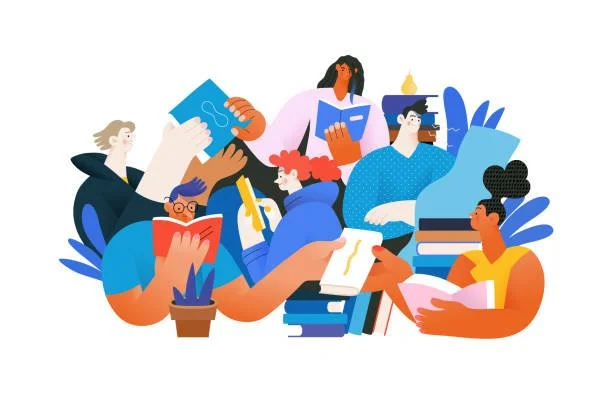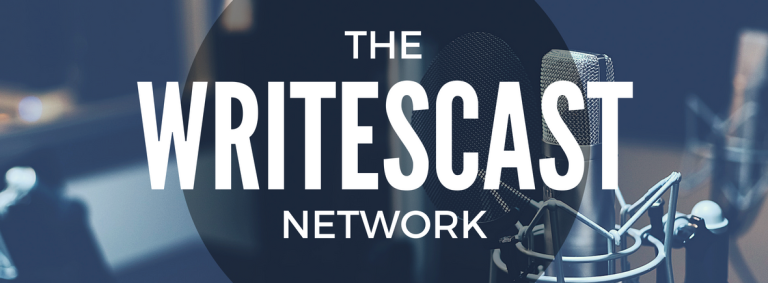Happy Wednesday Scribblers, I hope you’re all having a great week. I once spent four days at a Con (including travel, hotel, meals, plus Con expenses) and sold one book. One. It was brutal-but also one of my most educational experiences I’ve had. Book Events and Conventions are the best way to meet readers and sell your books. There’s no denying, if you’re an author, the best way to engage your fans is to attend book events and conventions. People might tell you there are other ways, and they may be correct, however most authors will concede engaging at events is the top way to reach and build a readership. So, what happens after you’ve researched the best book events and cons for you to attend, spent the time and money to travel, and ensured you have your books (in some cases ordering more books) and ‘poof’ you don’t sell anything? Or, readers for your books aren’t there? What do you do? How do you justify doing an event again? You had huge expanses, and you had next to no return. How do you overcome such an awful experience?
The short answer is you don’t.
The Long answer (and better way to evaluate the event) is you focus on the experience. Let me explain.
Each event you go to is boiled down into did I sell books? And, did I make my money back? But there’s more to a successful con than book sales (I know crazy right). Here are ways I look at events where I didn’t sell anything:
Allow yourself to be upset, hurt, and angry. Feel all your feelings, but don’t take out your frustration on others. This is difficult, I know. But denying yourself the moment to vent (privately) will do more harm than good.
When you’re at the event and you notice sales are going to be bad (and you can always tell within the first day of a multi-day event or the first couple of hours of a single day event), practice different elevator pitches for your book or books. (don’t have an elevator pitch for your book, you need one and I did a whole separate article on the topic you should check out). Use the downtime to audit your display- is it cluttered? Are your Book Inserts clear and useful (Book Inserts are a snapshot of your book’s genre, heat level, series number, type of story, etc.)? You can learn a lot about your book display by observing other vendors. If you’re around other authors, see what they’re doing? Look at how they display their books. Listen to how they speak about their books? If you’re not selling, then spend time absorbing and learning (this never stops, even if you’ve been doing events for years, there is always something to learn).
Use this opportunity to try different ways to sell and market your book. Maybe put together a book bundle to drive sales:
Offer any two books for ‘x’ amount of money. Giving folks a discount
Offer a series at a lower price
Do you have a book you want to get rid of, maybe offer the novel as a freebee?
Next up, talk to the other vendors, get to know them (especially if they are other authors) ‘dead’ events are a great place to network and build relationships. The down time gives you a chance to compare notes and ask questions. If you’re having a bad selling event, chances are so are they, so talk (avoid venting publicly-save those moments for private) to them and ask questions:
Have you been to this event before?
Is it always this quiet?
I really like your display. How did you do it? Where did you get your racks from? Where can I find a banner like that? I love your bookmarks; did you create them or have them created for you?
Talk about their books and listen to what they have to say.
If you like their cover, ask about their cover artist (even if you are with a publisher and they have an in-house cover artist, you can still get the name).
If you’re at the event alone and you can’t walk around, you can still chat with the surrounding folks, which brings me to my next point.
Walk around the vendor's room at the con/event, if you have someone with you who can watch your books and your booth. This will give you opportunity to network with other vendors. Chatting up others is a great way to get a feel for the conference and you might hear about other events you may be interested in attending. It may also drive some sales to your booth as folks talk about the really cool author they met.
At most cons/events, there will be various media walking about, they will often stop by and chat with you. This is a great time to talk up your books and to talk a bit about why you wrote your novels (don’t do an info dump on them, have your elevator pitch ready to use, if they want to learn more they will ask follow up questions). Often times the media are looking for people to interview or who will be willing to write an article for them. Almost every event (good sales or bad) I’ve been approached by a Vlogger/Blogger or traditional media who want to interview me. I would have never gotten the opportunity if I wasn’t at the event, so keep that in mind when you want to pack up your books and go home.
Another opportunity for a bad selling con is to use the event as a Marketing/PR experience. You can use your social media to hype up the event and your attendance. Post images of you sharing news about the con (be positive in your posts, do not use your social media to blast the con and attendees for not buying your books.). Remember to tag the con and your publisher. If you are taking pictures with others, tag them. It may not sell any of your books right now, but you’re creating a buzz and by being positive and sounding like you’re having a great time the con may share your post and so might the other people you’ve tagged, which gets more eyes on you and your novels, which could lead to more sales. Also, by using your social media to promote the event you’re at, other potential cons/book events might take note of how you promoted the current event and invite you to be a vendor at their event.
Get to know the Con/Event staff. Chances are if your sales are down and foot traffic is light, they know. Again, avoid venting about the event, however as you talk with the staff/volunteers it’s a great place to ask questions; Is the con/event always this slow? How is the con/event going to get more folks here in the future? Are there any panels I can join (you’d be surprised at how many speakers back out for one reason or another leaving a panel with an open spot)? The friendlier you are with the staff/volunteers and the more you chat them up, the more they will see what they can do to help you out and get you on any open panels (assuming there are panels at the con you are suited for).
Most importantly after the con/book event provide feedback. Offer suggestions on improving the event for next year. People will listen to constructive critiques, but will shut down when they feel attacked. The more positive feedback you can offer (with suggestions on improving the event) the better your input will be received.
There are several other ways you can evaluate a low-performing book event, but the reality is you need to decide was the event, overall, worth it for you? And that is a call each individual needs to make for themselves. The information above is provided as additional ways to evaluate a book event/conference where you had next to no sales. Keep in mind some events aren’t known as large sale events, you go to them and participate for many of the reasons listed above and remember even a no-sale event can plant the seeds of future success-if you know were to look.
That’s what I have for this week. I hope it helps. Until next time have a great week.











































